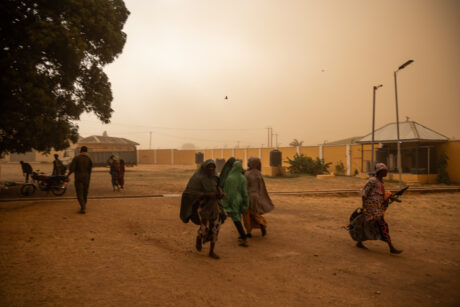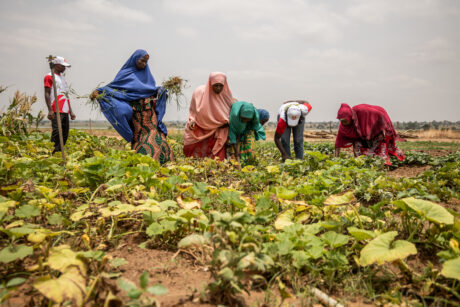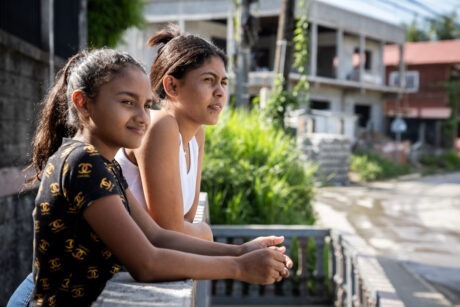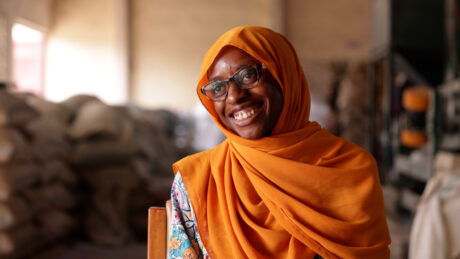The five-year West Africa Trade & Investment Hub Activity, funded by USAID, was a catalyst for economic transformation across Nigeria, Senegal, Côte d’Ivoire, Ghana and other West African countries. By attracting private investment, strengthening business networks and boosting agricultural and trade sectors, the Trade Hub significantly contributed to the region’s economic growth. Before closing in September 2024, the Trade Hub administered $65 million in co-investment funds to 93 co-investment partners, attracting $489 million in private-sector investment.
These images highlight the involvement of women and youth in factories and farms, who are the backbone of this economic revolution.
From innovative farming practices to bustling production lines, these photos capture the essence of a region on the rise. Each snapshot tells a story of resilience, empowerment and progress, reflecting the Trade Hub’s commitment to enhancing food security, raising household incomes and fostering gender inclusion.
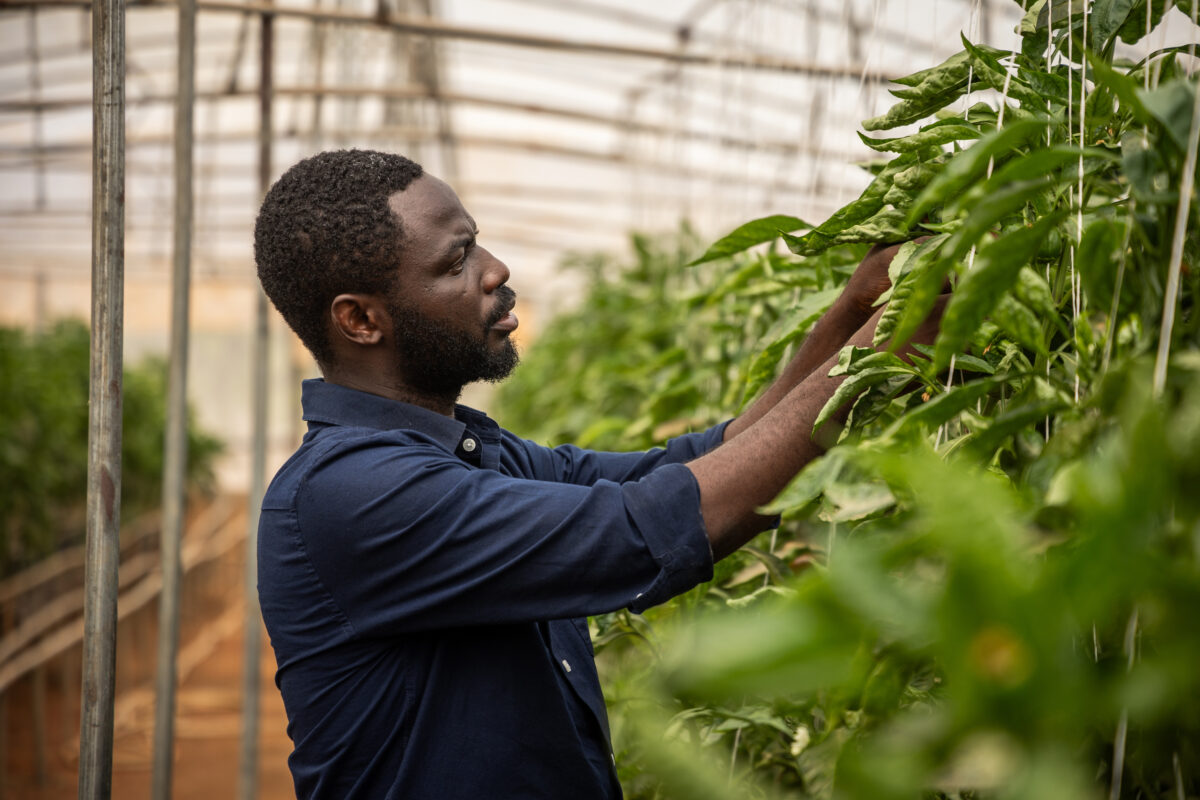
Esson Akolo tends to plants in a greenhouse at the Tomato Jos facilities. Tomato Jos, a woman-owned social enterprise agricultural company in Kaduna State, Nigeria, aims to create a middle class in rural areas by boosting the production and incomes of farmers growing tomatoes, maize and soy. With a $1.2 million co-investment grant from the Trade Hub, Tomato Jos secured an additional $7.5 million in capital, supporting over 4,000 smallholders in learning modern agricultural techniques. The project generated $3.1 million in sales revenue and produced significant quantities of crops, providing steady income for farmers. The Trade Hub’s support has been instrumental in enhancing Tomato Jos’ operations and market opportunities, contributing to economic growth and security in the region.
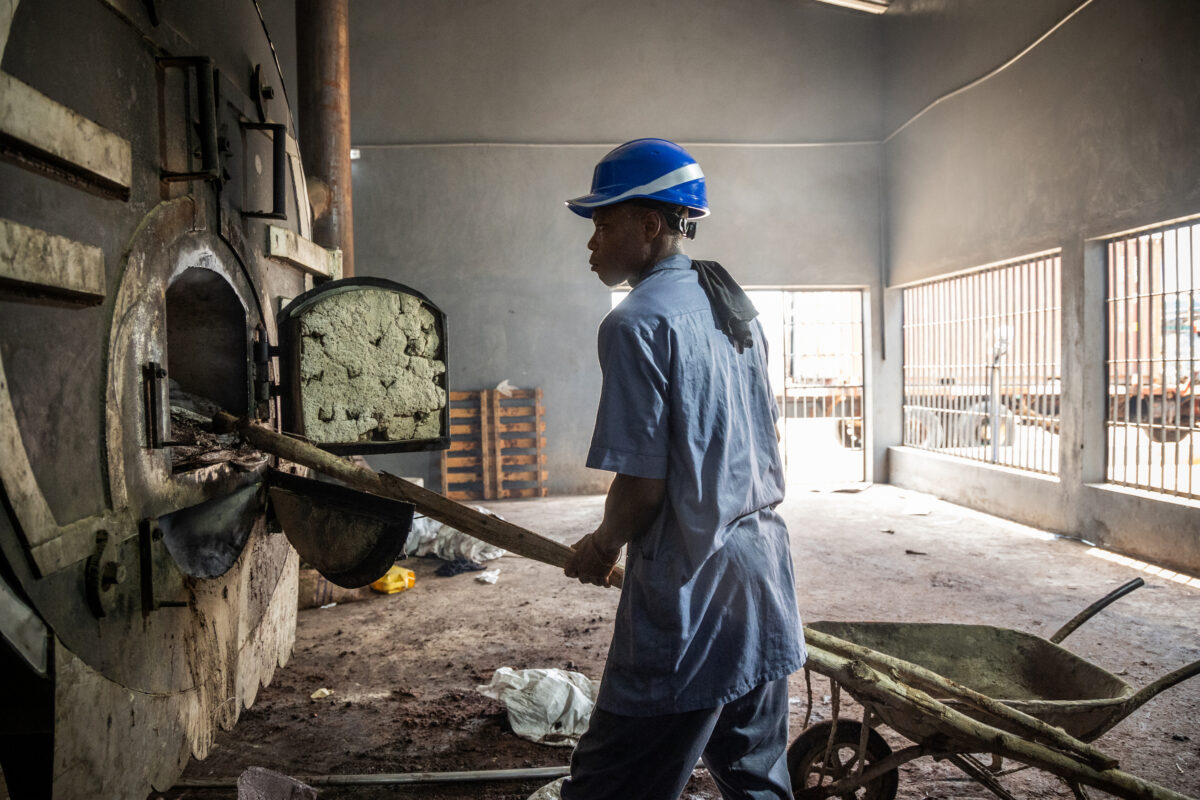
A worker at the Label d’Or shea butter factory in Togo demonstrates the innovative use of shea byproducts to power the facility’s boiler. This climate-smart practice not only reduces reliance on fossil fuels but also exemplifies how West African businesses are leading in sustainable and resilient business models. By integrating green energy solutions such as solar panels and natural lighting, Label d’Or is setting a benchmark for eco-friendly operations, supported by the Trade Hub’s co-investment grants and technical assistance to foster sustainability and climate adaptability.
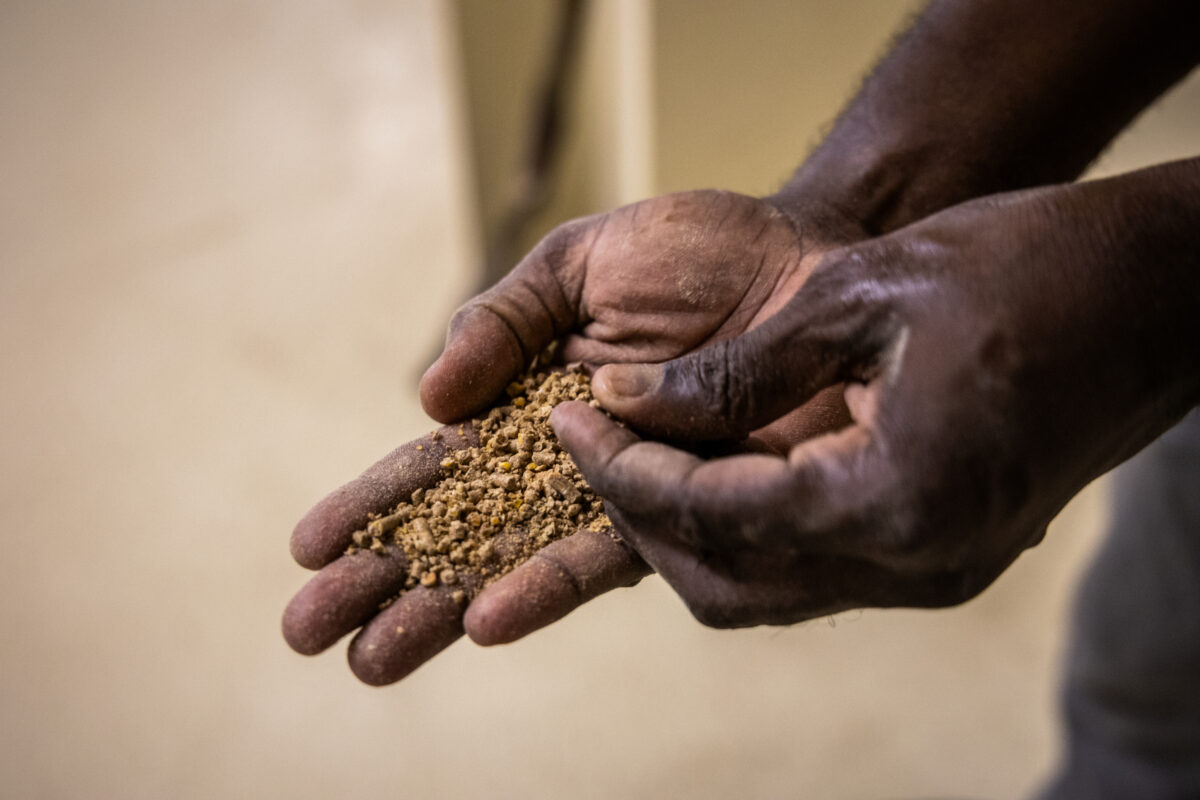
With a burgeoning population and growing market, West Africa has a high demand for animal protein. But farmers in Côte d’Ivoire face significant challenges accessing high-quality animal feed, limiting their production abilities. The new De Heus animal feed mill in Abidjan has been able to boost production and employ women and youth in its factory.
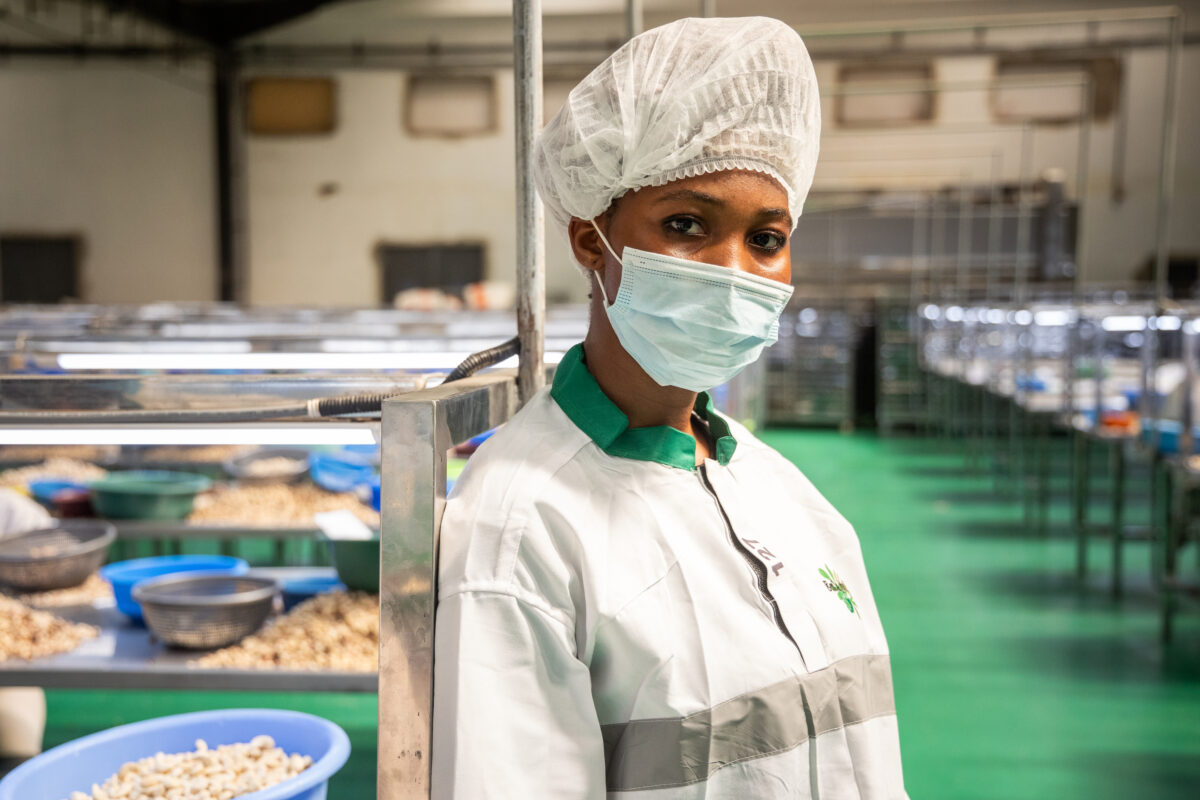
Cécile Lean Lou Boli, a supervisor at EcoCajou, oversees women in the factory where cashews are processed. Cashew nuts are one of Côte d’Ivoire’s largest exports, yet less than 5 percent are processed locally. With an $800,000 co-investment from USAID, EcoCajou built a 15,000 metric ton-per-year processing plant, revitalizing the cashew industry and creating 1,142 new jobs. This facility not only boosts local employment but also supports 5,390 cashew producers and prepares to increase exports to international markets. EcoCajou is also aiding 4,085 producers in obtaining organic certification, fostering a sustainable agricultural landscape in West Africa. Through the Trade Hub, USAID has helped companies like EcoCajou improve competitiveness, expand production and connect to global markets.
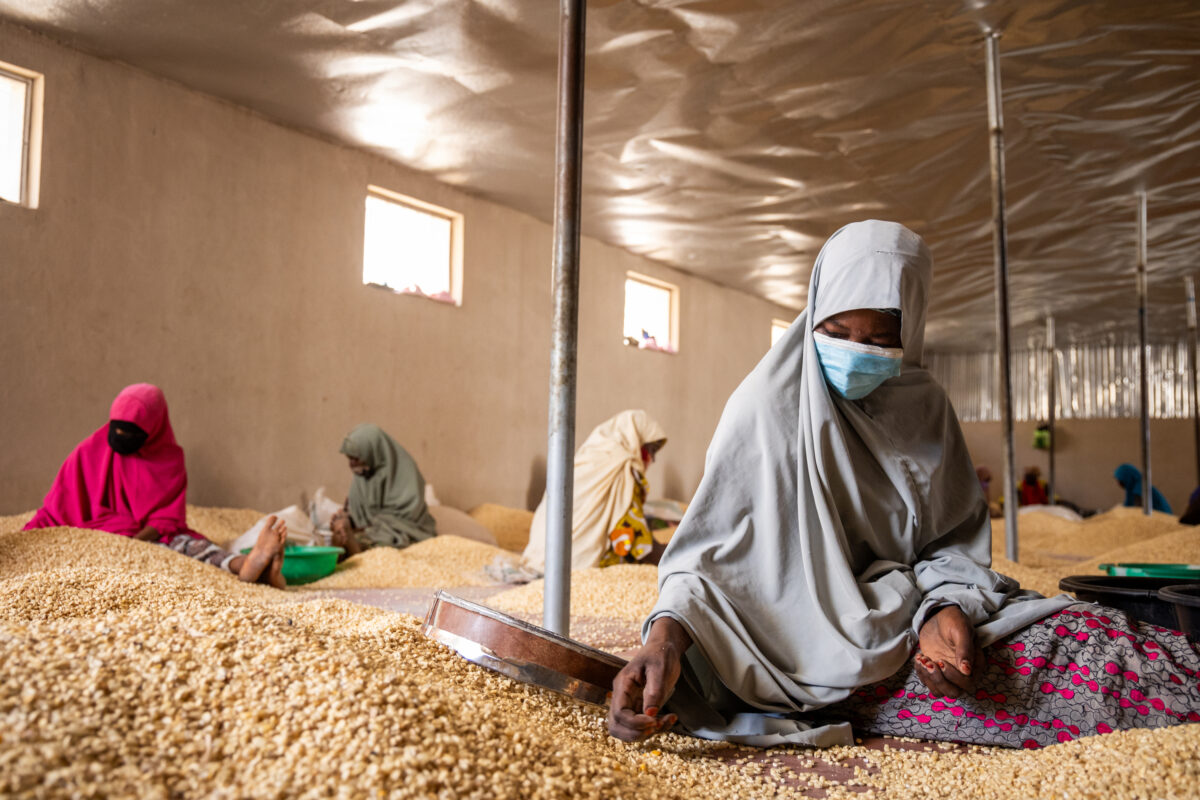
Women sorting and cleaning seeds at a warehouse of Adefunke Desh Nigeria. This woman-owned agribusiness grows and processes grains for domestic and international markets. With a 1.3 million co-investment grant from the Trade Hub, Adefunke Desh has empowered nearly 8,000 farmers by providing them with essential resources like fertilizer, seeds, and technical training. This initiative has not only improved the quality of crops but also ensured a reliable market for the farmers’ produce. By implementing new farming techniques through demonstration plots, the company has helped farmers increase their yields and secure a stable income, fostering economic growth and sustainability in their communities.
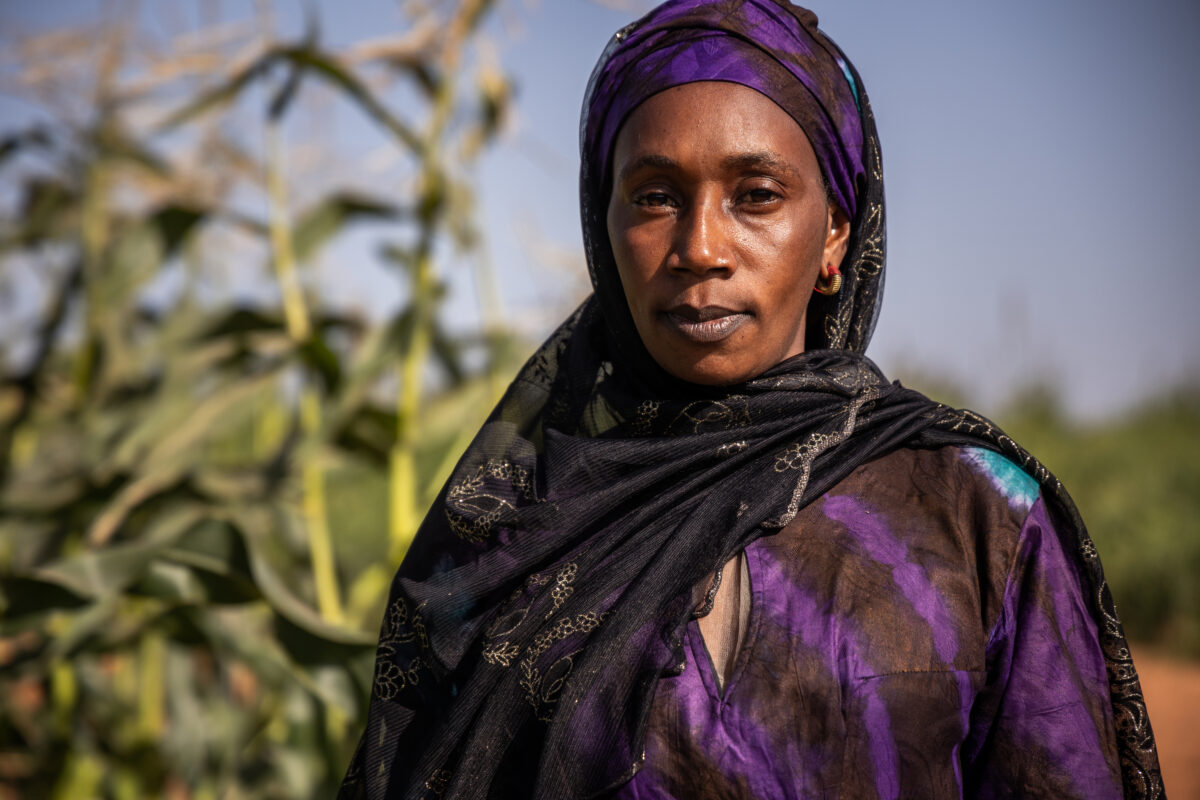
Sow Meyedji Demba, an employee of Agro Boye Business, harvests corn at their farm near St. Louis, Senegal. Supported by the Trade Hub, Agro Boye is transforming agriculture and improving lives. By empowering local farmers and providing jobs for women and youth, the company is making a tangible impact. “This work allows us, as women, to earn a living and support ourselves,” says Demba. Agro Boye has also built concrete homes for their workers, replacing makeshift buildings and giving Demba and her extended family a safe, comfortable place to live. So far, the company has created over 800 jobs, most of them for young people and women, and is increasing the production of key crops to boost nutritional and economic self-reliance in Senegal.
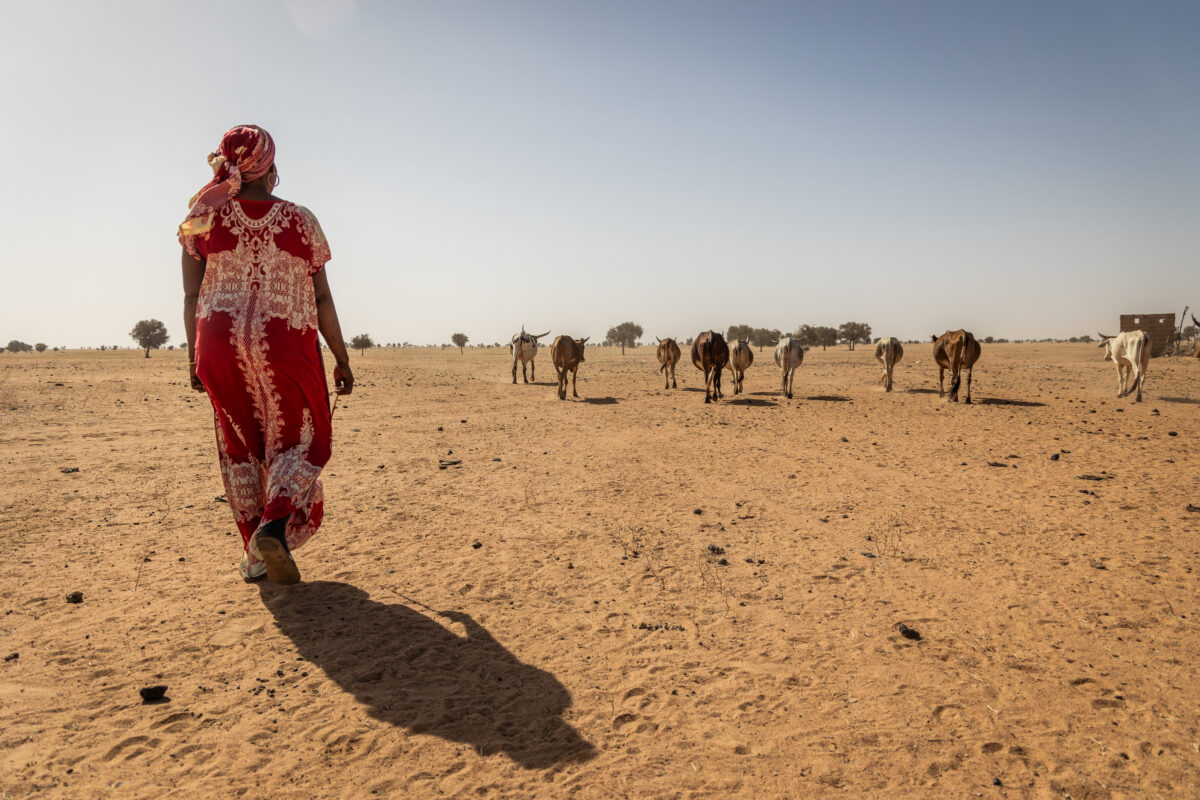
In the early morning hours, Ramata Ba works on her farm in a village some distance from Richard Toll, in the north of Senegal. Just a few years ago, this village didn’t exist. The dairy farmers living here were nomadic, moving around with their herds and hoping to find a buyer for their products. This all changed when La Laiterie du Berger moved in to help nomadic farmers like Ramata Ba settle down and start farms. It works because La Laiterie du Berger is a consistent, fair buyer of milk, which it processes into yogurt and other dairy products to sell all over the country. Beyond just providing a stable income for farmers, the company has a training and incubation program that teaches young women how to raise a herd and start their business.
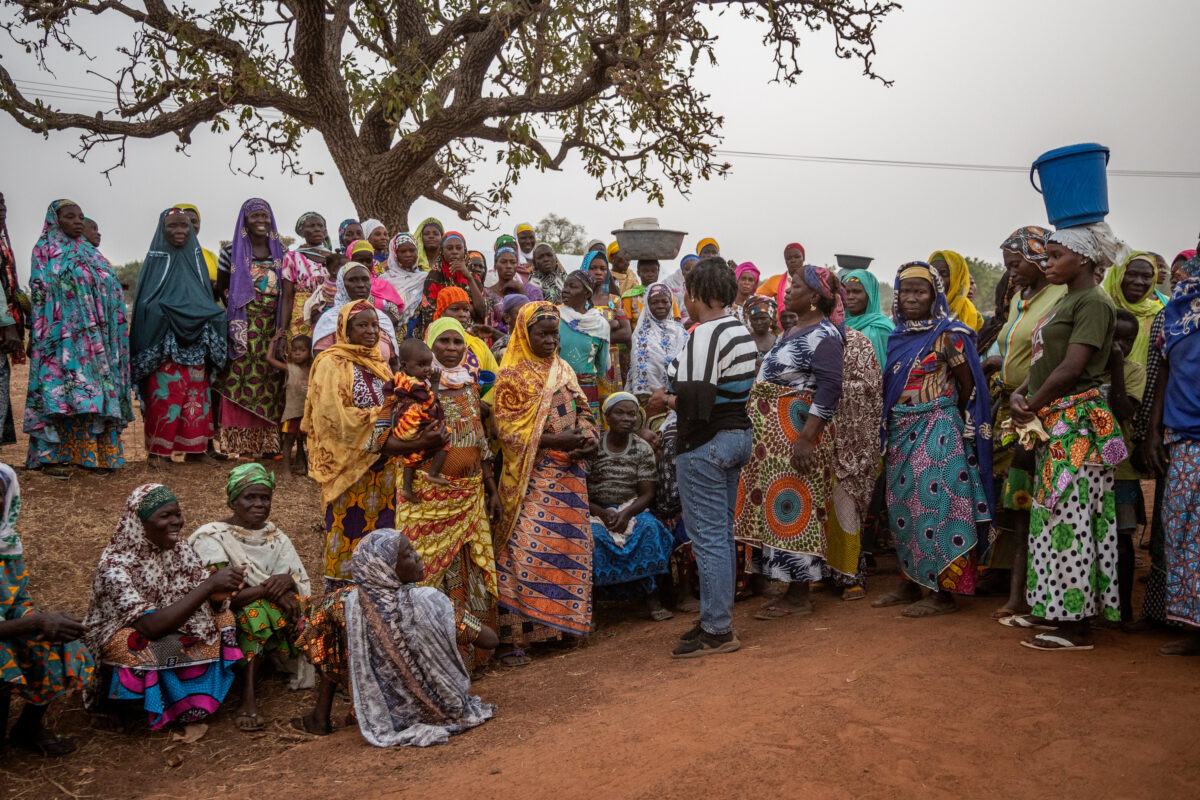
Dora Torwiseh, founder and CEO of Nuts for Growth, is warmly welcomed by women from a small village in northern Ghana. Known for her dedication and vision, Dora has built the largest shea butter processing facility in West Africa. Through her company, she connects over 80,000 women in the Women for Change network to the international market, transforming the shea butter sector. These women benefit from training and support, enabling them to earn a consistent income by gathering shea nuts, an abundant resource in the region.
With support from USAID, Nuts for Growth has significantly expanded its production capacity and reach. The co-investment allowed Dora to enhance the quality of the shea butter produced and ensure a reliable market for women’s products. This initiative not only improves livelihoods but also fosters a sense of hope and empowerment in the communities she serves. Dora’s efforts are paving the way for better economic outcomes and sustainable development in northern Ghana, demonstrating the profound impact of connecting rural women to the global market.
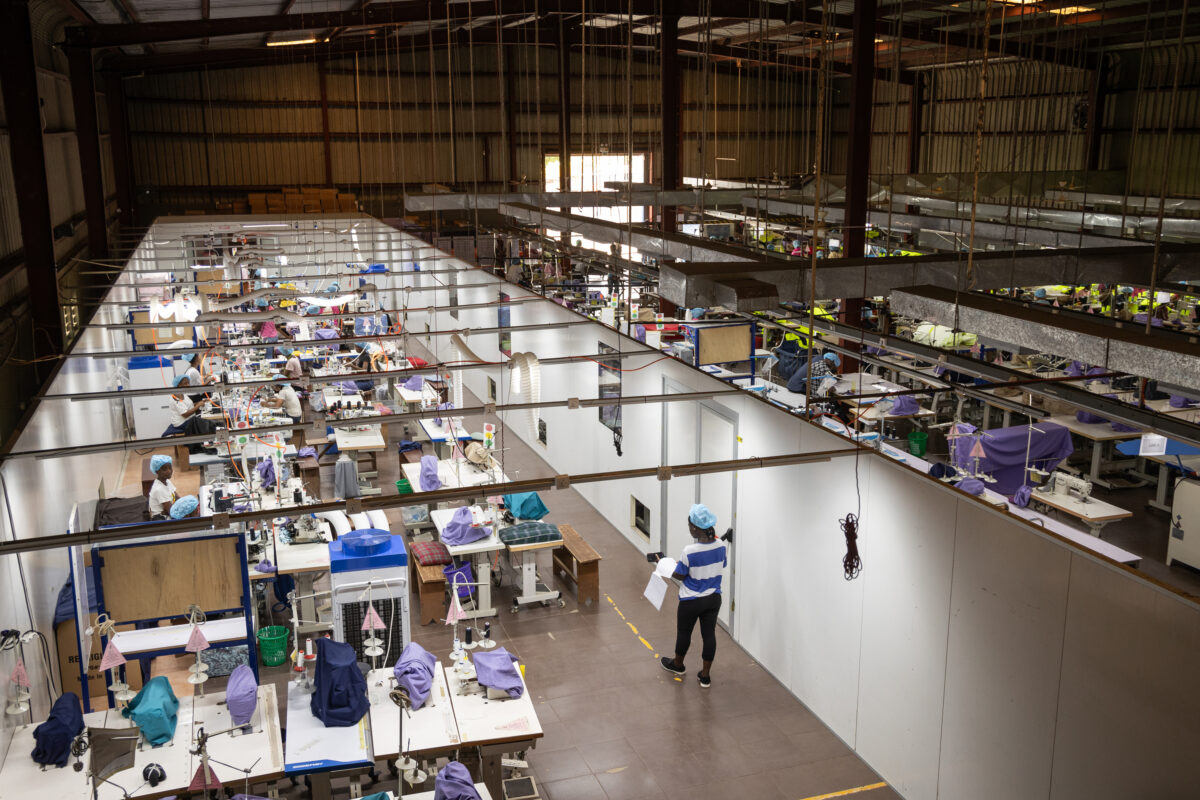
The Maagrace Garment Factory, part of Ethical Apparel Africa, in Koforidua, Ghana. With support from USAID, Ethical Apparel Africa modernized its facilities, greatly increasing its production capacity and export capabilities. This partnership has not only created employment opportunities for local workers but has also upskilled them, enhancing their ability to compete in international markets. By investing in construction, modernization, and technical assistance, the Trade Hub helped companies like Ethical Apparel Africa drive economic growth and connect Ghanaian products to the global market.
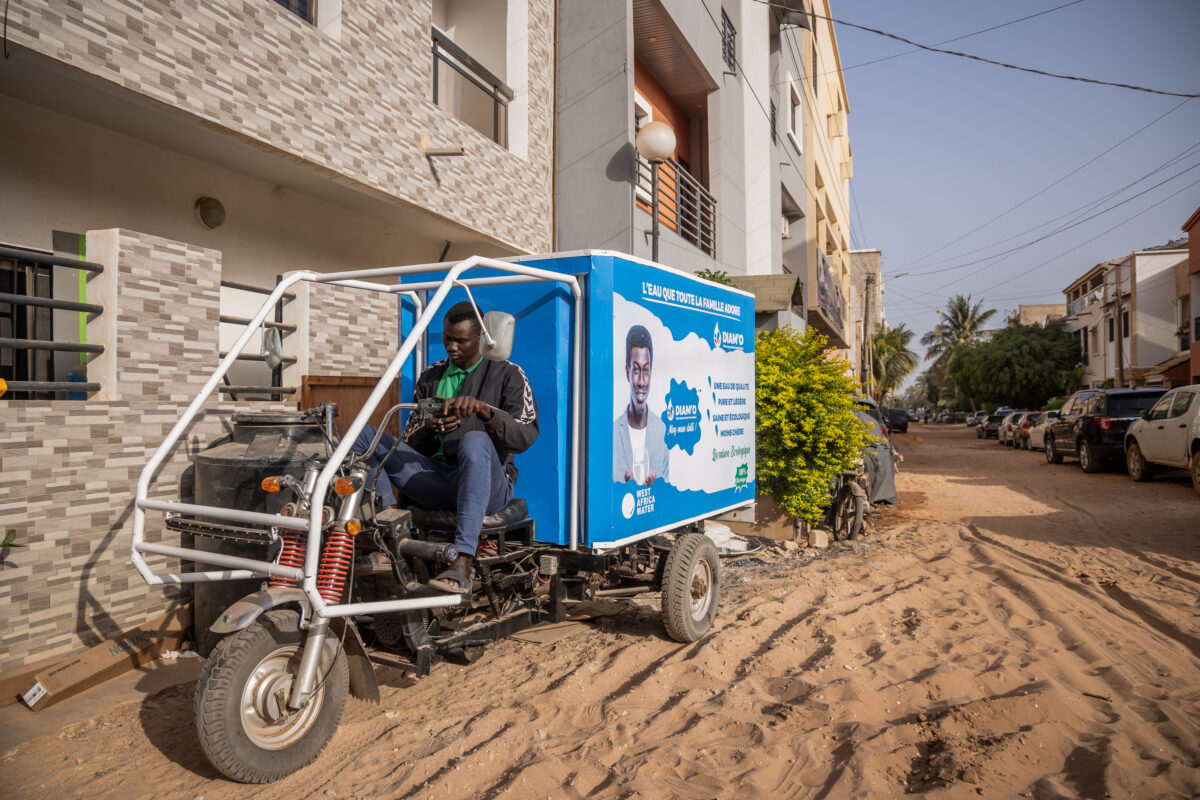
A West Africa Water delivery cart makes its rounds, bringing clean, affordable drinking water to neighborhoods in Mbour, Senegal. Supported by USAID, West Africa Water has established over 100 Diam’O kiosks equipped with their own filtration systems, reducing reliance on single-use plastics. The delivery service ensures that communities with limited access to clean water can refill their containers conveniently. The Trade Hub invested nearly $6.1 million in six West African companies to improve access to clean water and sanitation facilities in Burkina Faso, Côte d’Ivoire, Mali and Senegal.
All photos taken by Jim Huylebroek for Creative Associates International.
